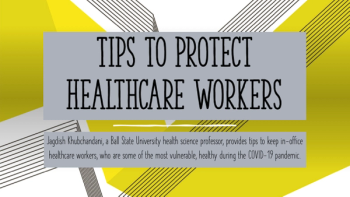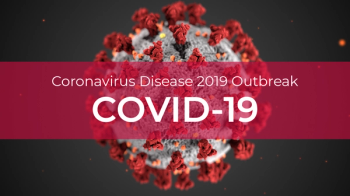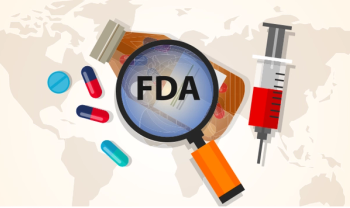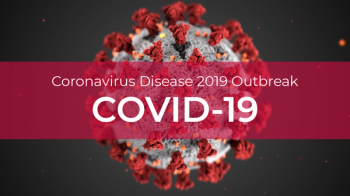
First point-of-care test to detect coronavirus cleared.

Washington State nursing home was "ground zero" of U.S. COVID-19, says Verma

Hospitals face the losses even with proposed increase in federal reimbursement.

American College of Physicians wrote in a letter that more improvements are needed to the Coronavirus Aid, Relief, and Economic Security Act to better support physcians taking care of patients.


Can mitigate overcrowding in healthcare facilities and reduce exposure

Jagdish Khubchandani, a Ball State University health science professor, provides tips to keep in-office healthcare workers, who are some of the most vulnerable, healthy during the COVID-19 pandemic.

498 patients tested, 2,000 employees WFH

CROs are also adapting to pandemic.

Study finds respiratory, digestive symptoms overlap in COVID-19 patients

With more consumer-centric efforts in healthcare, hospitals and providers have been seeing a decline in patient volume. Four more consumer-centric strategies can be found.

The agency takes other steps to make COVID-19 tests more available.

Leveraging experience in monitoring coronavirus symptoms, Datos health, an Israeli telehealth company, releases solution to avoid low-risk patients in overwhelming hospitals.

Medicare rules were waived today.

EarlySense is helping Sheba Medical Center in Israel to protect staff who are treating patients for the coronavirus through monitoring and are prepared to implement similar solution in hospitals and skilled nursing facilities.

The agency takes other steps to make COVID-19 tests more available.

Experts differ on the strength of the evidence.

Stay at home is a common refrain of the 15-day guidance

Best case: The vaccine is available a year from now

New measures taken due to depression, suicidal thoughts, and other adverse events.

Most were exposed during noninvasive ventilation

Out-of-pocket expenses could be as high as $1,300.

According to a recent report by Ball State University, abbout 17% of U.S. employees could be negatively impacted if social distancing becomes the norm as the nation attempts to contain COVID-19.


This week’s favorites ran the gamut from tech to COVID-19.

Send your news to Peter Wehrwein at pwehrwein@ajmc.com

The incubation period, fecal-oral transmission, hospital surge, internet scams, & the risk for pets.

The successor, Oncology Care First, will likely include two tracks with downside risk right from the start.

Medicare Advantage plans are now covering more benefits than they have in the past for those facing social determinants of health in their daily lifestyles.

There is fairly broad agreement that conditions like cancer, diabetes, and more will be the most costly for the American healthcare system over the next decade.